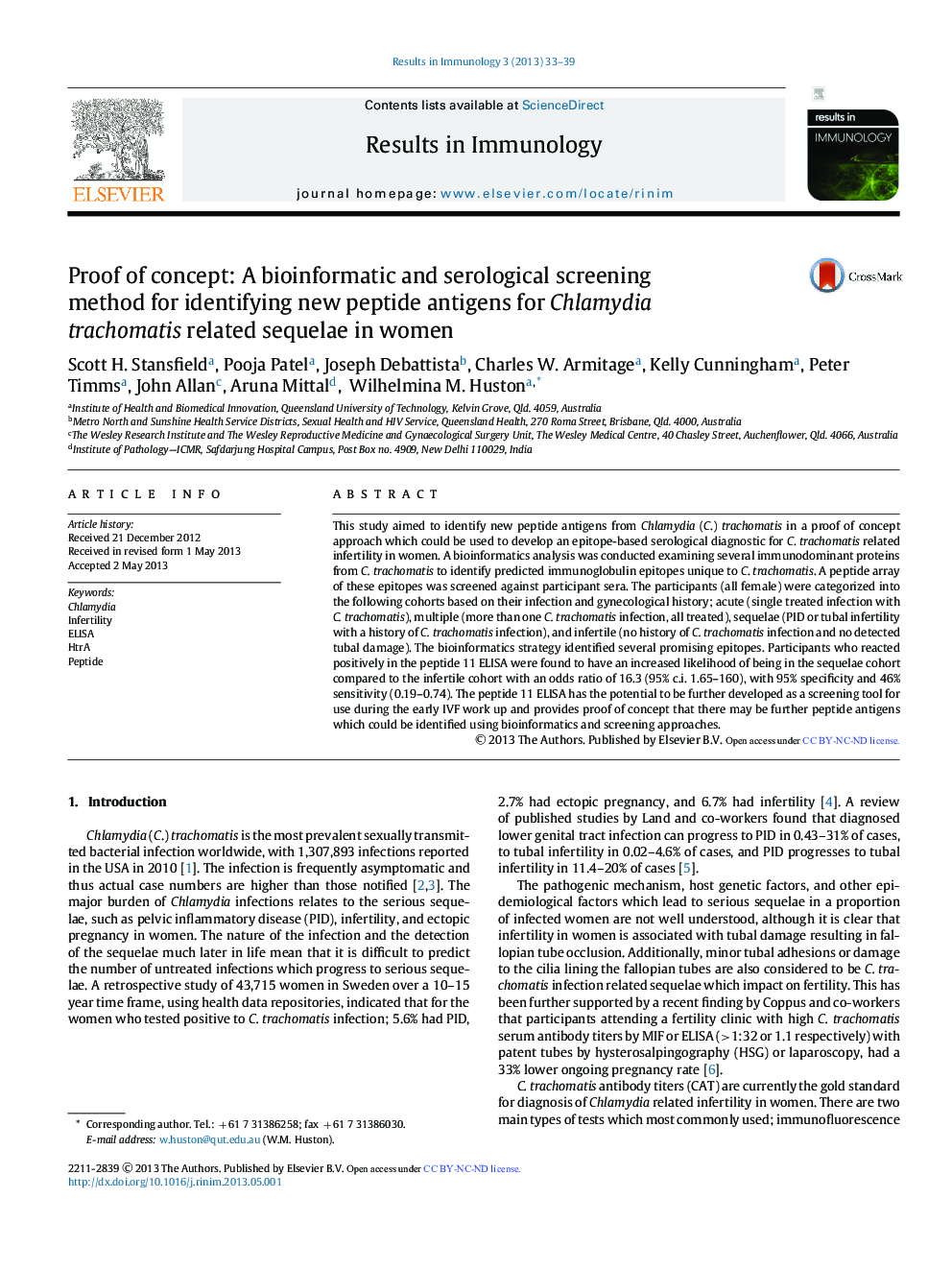| Article ID | Journal | Published Year | Pages | File Type |
|---|---|---|---|---|
| 2202366 | Results in Immunology | 2013 | 7 Pages |
•A bioinformatics analysis of known C. trachomatis immunodominant proteins successfully predicted unique immunoglobulin peptide epitopes.•Serological screening of these peptides demonstrated identification of antigens specific to women with C. trachomatis disease sequelae.•Further development of one peptide as an ELISA demonstrated high specificity to diagnose women with C. trachomatis infertility and sequelae.
This study aimed to identify new peptide antigens from Chlamydia (C.) trachomatis in a proof of concept approach which could be used to develop an epitope-based serological diagnostic for C. trachomatis related infertility in women. A bioinformatics analysis was conducted examining several immunodominant proteins from C. trachomatis to identify predicted immunoglobulin epitopes unique to C. trachomatis. A peptide array of these epitopes was screened against participant sera. The participants (all female) were categorized into the following cohorts based on their infection and gynecological history; acute (single treated infection with C. trachomatis), multiple (more than one C. trachomatis infection, all treated), sequelae (PID or tubal infertility with a history of C. trachomatis infection), and infertile (no history of C. trachomatis infection and no detected tubal damage). The bioinformatics strategy identified several promising epitopes. Participants who reacted positively in the peptide 11 ELISA were found to have an increased likelihood of being in the sequelae cohort compared to the infertile cohort with an odds ratio of 16.3 (95% c.i. 1.65–160), with 95% specificity and 46% sensitivity (0.19–0.74). The peptide 11 ELISA has the potential to be further developed as a screening tool for use during the early IVF work up and provides proof of concept that there may be further peptide antigens which could be identified using bioinformatics and screening approaches.
